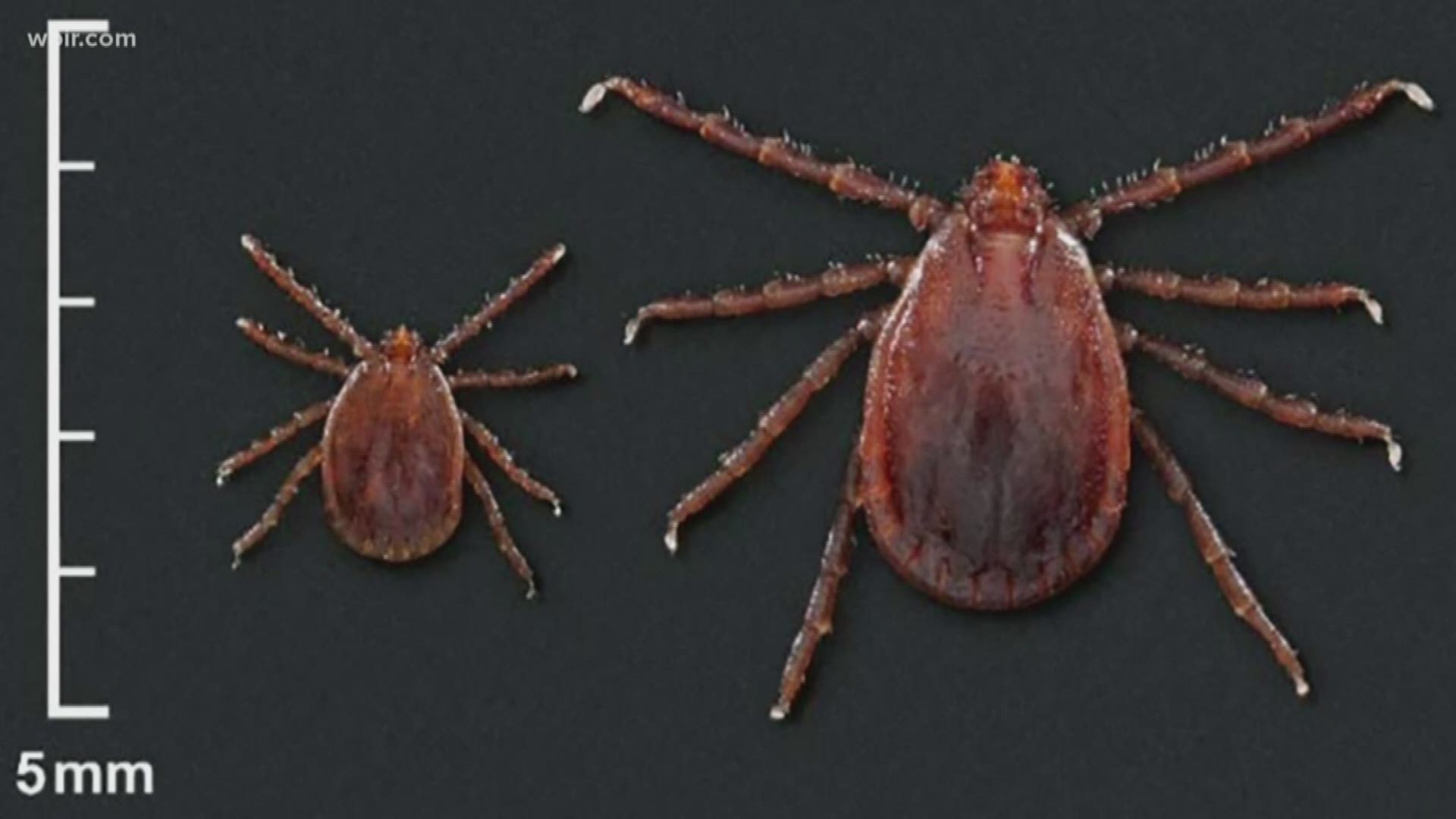The University of Tennessee is using $150,000 in grant money to learn more about and combat the spread of an invasive tick recently discovered in East Tennessee.
State agricultural officials said the tiny Asian longhorned tick has been detected in several counties, including Jefferson, Claiborne, Cocke, Putnam, and Sevier. Roughly the size of the lettering on pennies, the invasive pest was initially confirmed in Union and Roane Counties back in May, and UT researchers told 10News in June that it was detected in Knox County.
The insect is known to carry illnesses in Asia, but so far none of the Asian longhorned ticks found in the United States have transmitted anything harmful to humans. However, the ticks feed on large population clusters, and can suck out enough blood in a short time to cause anemia in grown livestock and kill young animals.
UT said Tennessee was identified among 12 states the pest now calls home since its U.S. arrival in 2017. UT said the tick multiplies rapidly thanks to asexual reproduction and is capable of rapid infestation of fields and host animals like cattle and canines.
UT researchers said they are now collaborating with academic, government and industry stakeholders to develop a tick-surveillance network. Teams will work with the Tennessee Dept. of Agriculture and Health, Tennessee Wildlife Resources Agency and U.S. Dept. of Agriculture -- as well as local veterinarians, animal shelters, livestock markets and more.
Researchers said the goal is to enhance awareness of the pest and help those affected make informed pest-management decisions. Teams expect work to ramp up next spring with nymph populations start to boom.

